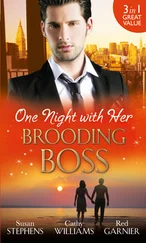'It was a big one,' Jane said.
'How big? As big as a elephant?'
'Oh yeah.'
He pointed out the immense crippled landing gear. 'Look, see? Six wheels. That means it was a 777. Big plane. Big engine. If there were three of you inside standing on top of each other, you might just reach the top.'
'How many people could it carry?'
Jane looked around at the wreckage. Little remained of the fuselage. Curved aft sections. A portion of wing. A portion of the great tail. He didn't recognise the livery. Something from the Far East, most likely.
'I don't know. It depends on the route, I think. And the time. Three hundred and fifty, maybe. Maybe as many as five hundred. A little more.'
Aidan spread his arms wide. 'About this many?'
'Yes, that's about right.'
Although the fuselage had disintegrated, there were sections of the interior that had survived the impact. Some passengers were strapped into their seats, bolted to the floor. One man, decapitated, held on to a plastic cup, imprisoned between clenched fingers. Most of the bodies, or body parts, lay in the field; some had hit with such force that they had partially buried themselves. Suitcases and handbags, wheelchairs and buggies. Someone had once told him that whenever you took a flight, the chances were there was a coffin in the hold. The shining dust from the crash skirled around the debris as if reluctant to leave the construct that had produced it.
Aidan had found a laminated emergency procedure sheet. He stared at it for a long time before tucking it under his arm. He seemed thoughtful, as if he'd done something wrong. Looking at children sometimes, Jane thought, you could almost see the cogs shifting.
They found what remained of the cockpit: instrument panels and throttle levers, the pilot's chair. Miles of wire and hydraulic cables hanging out of bulkheads, like some lost ungodly page from Gray's Anatomy . Nothing of use. Everything in the galleys broken or crushed. Jane found an ugly mass of metal and a great deal of blood but couldn't work out what it was. There were hard impact marks – deep scars in steel – that suggested there had been some almighty meeting of surfaces. He saw the edge of a small plastic number plate and realised: the seats at the front of the aircraft, maybe four or five rows, had concertinaed into a compressed block barely a foot deep. There were people crushed paper-thin inside that. He saw tufts of hair. Little else, thank God.
'I've seen enough,' he said. They went back to Becky, who was playing with her bracelet, staring resolutely at the ground.
'Think of how many aircraft are in the skies at any one time,' she said, and he saw her shudder, an almost reptilian reaction that moved slowly through her body from her head to her feet. It was as if she were trying to slough her skin. 'There's just no end to this. No end at all to how low things can get. No end in sight.'
Jane didn't know what to say. He muttered some bland platitude about survival, how she had to go on because she had no choice. But he didn't really believe it. She stood up. She had either swallowed what he had to say – which he doubted – or decided to move on anyway. It was all for Aidan. Jane wondered what she might do if the boy wasn't there. He felt almost guilty that he had Stanley to keep him motivated. How empty was your own life if you had nobody living in it?
The three of them picked their way through the wreckage and put the M25 behind them. They were within its circle now, and Jane knew that somewhere within its borders, somewhere within this 800 square miles, was Stanley. He thought it would give his gait added swing, but instead he felt more and more enervated. He couldn't concentrate on anything but that great circular concrete road, how it seemed like a trap, a slip-knot that might close around them at any moment, trapping them for ever.
They bade farewell to the A1 where its motorway namesake crossed beneath it. They headed south-west across Edgware to the A5, the ancient Roman Road that would lead them, straight as a rule, to Marble Arch. The nearer Jane got to his goal, the slower the going. The bodies had been increasing in number ever since they passed into the northern environs of the city. In some places they had to double back and find a different route; it seemed as though every person in the street had come together in a mass huddle to die.
Jane tried to leaven the atmosphere with jokes, but his delivery was exhausted, deadpan. He looked into Aidan's grey emaciated face and saw himself there. Nothing for the boy to grow into; he was old before his time. Where could you go from here? Back to Toytown and Sodor and Nutwood? What was there in those places for a boy who had seen heads without faces; death in every possible position and permutation? You couldn't reclaim your youth after that, no matter that it was only a third lived.
He had to gee Aidan along; he was complaining of being tired. 'We're nearly there,' he said. 'Stanley. He's going to love you. You two are going to be great mates.'
'What if he's dead?'
Jane's stride faltered. Becky said: 'Aidan.'
'It's OK, Becky,' Jane said. And to Aidan: 'He's not dead.'
'How do you know? Everyone else is.'
'You're not. Becky's not. I'm not.'
'Everyone else is.'
'I can't explain it to you,' Jane said. 'I can't make you see. But he's not dead. I promise you. Now let's get cracking. Get a wiggle on.'
They followed the road past places Jane had never visited before, names he knew only because of the Tube map. Colindale, Hendon, Kingsbury, Dollis Hill. Aidan fell asleep in the wheelbarrow. Darkness was racing Jane home. He was tired too. He wondered at the irony of collapsing with exhaustion seconds from his doorstep. He glanced at Becky but she was a wraith, much too thin for the clothes she wore; a belt was cinched tight around her waist. She seemed to be fading into the grey of this north-west street.
Cricklewood. Mapesbury. Brondesbury. Kilburn. He didn't recognise anything. Buses and cabs and cars choked the road. Bodies were folded over each other as if they'd been competing to die first. It was fully dark by the time they reached the borders of St John's Wood and Maida Vale. Here were fall-back shops that he'd sometimes trolled out to if they'd been out of milk or bread and nowhere else had been open. Pubs he'd met friends in. Parks where he had taken Stanley on his scooter. Here came the roads he'd walked every day. The shape of things became known to him. The juxtaposition of trees and fences and street corners. He recognised a car that belonged to a friend and it shocked him so much that he thought he might be sick. Dead friends all over the country. Dead friends so much riddled flesh in the North Sea now.
At last he stopped. He was expecting the smell of dogwood and rosemary. The bark of Major at Number 9. Maybe a top-floor window open and a stereo playing music too loud: Interpol or Elbow or White Stripes. The hum of traffic. Female heels tapping on a pavement.
None of that. No street lamps. Just the grey trench of his street and dozens of dead sprawled up it, like procumbent weeds.
'Come on,' he said. He stopped outside Number 7 and shook Aidan awake. Jane could hardly speak for the pistoning of his breath, the hammer of his heart. 'Come on.'
He led them to the door, which was hanging off its hinges. Stanley used to pummel that door like a maniac whenever he got home. 'Stan?' he called, but it crumbled out of him, barely a whisper. He ushered the others inside, his eyes blurring, his fear mounting, his excitement hollowing him out until he thought he might float up the stairs. 'Stan?'
In the street, a dead thing twitched and sat up.
Part Two
LAZARUS TAXON
15. CITY OF CODE
Читать дальше












